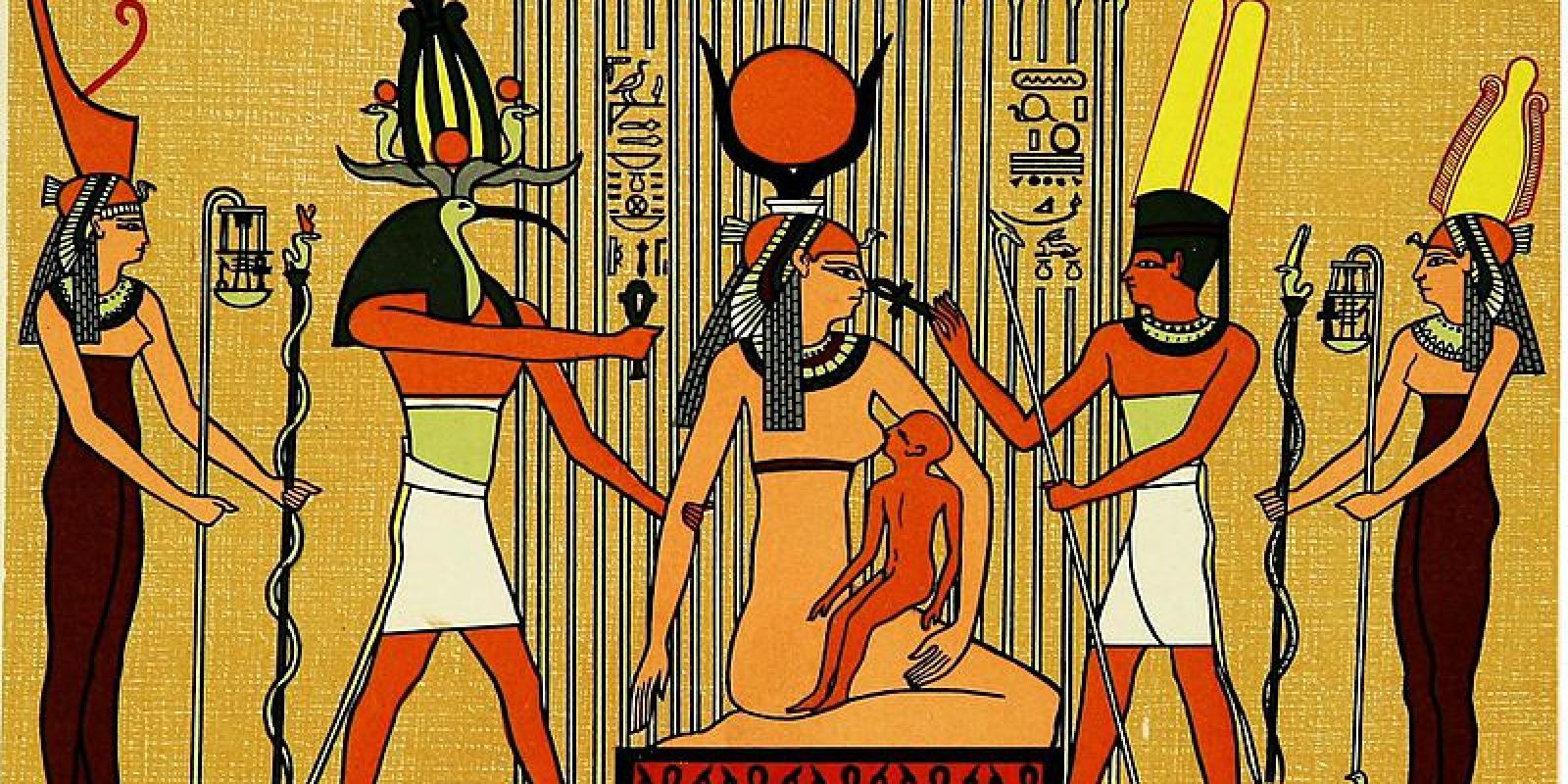
History of Mother's Day: From Ancient Egypt to Modern Times
It is a common belief that the tradition of Mother’s Day began in the West, originating from Greek and Roman spring festivals dedicated to maternal goddesses and Mothering Sunday observed in the European Christian tradition since the 1600s. But in fact, the first celebrations of motherhood occurred right here in Egypt as part of a Pharaonic tradition.
Ancient Egyptian Roots
Ancient Egyptians held an annual festival to honor Isis, one of the most popular and enduring goddesses of ancient Egypt who represented the ideal mother and wife and was the patroness of nature and magic. According to ancient Egyptian mythology, Isis was the wife of Osiris, who was also her brother. When Osiris was murdered by their envious brother Set, Isis gathered Osiris’s body parts that had been scattered around Egypt and used them to impregnate herself. She then gave birth to Horus, who avenged his father’s death and killed Set, becoming the first ruler of Egypt. As a result, Isis was regarded as the mother of all pharaohs and became symbolic of motherhood, and an annual festival was held in her honor.
Isis was first depicted with an empty throne on her head, personifying the power behind the pharaoh. Later, she was represented with the horns of a cow on her head, with the solar disk between them or as a winged goddess -- a signifier of both her protectiveness and ability to fan renewed life into the dead. By the New Kingdom, some depictions of Isis showed her breastfeeding her son, Horus.

Isis suckling her child Horus Credit: Wellcome Library
The religion of Isis was introduced to the Hellenistic world by the ruler Ptolemy I Soter as a means to unify the Greeks and Egyptians in his kingdom which spread across modern day Egypt. In the Greco-Roman culture, Isis was associated with goddesses Demeter, Astarte and Aphrodite which furthered her symbolic ties with fertility and femininity.

A 2nd century BC Greek bust of Isis Credit:I, QuartierLatin1968
The ancient Greeks partook in springtime rituals to honor Rhea, the mother of Zeus and mother of all gods, in which they would make offerings of honey-cakes, fine drinks, and flowers at dawn. The Roman Festival of Hilaria was a multi-day celebration centered on the March equinox to honor Cybele, their own mother of gods, also known as Magna Mater (Great Mother).
From Divine to Secular
Eventually, celebrations of motherhood transitioned away from divine representations and toward the individuals themselves. In the United Kingdom, Mothering Sunday, fourth Sunday of Lent, slowly became a secular tradition where working people could take time off to go home and visit their mothers.
The birth of the modern Mother’s Day in the United States is attributed to Anna Jarvis, who advocated for an official holiday that would honor the sacrifice of all mothers. Inspired by her own late mother, an activist and social worker, Jarvis held the first Mother’s Day in 1908 as a memorial service for her mother at a Methodist Church in West Virginia. In 1914, she and her supporters succeeded in making it a national holiday celebrated on the second Sunday in May.
Today, Mother's Day is celebrated all over the world, usually in the months of March or May. The traditions vary in every country, but giving gifts, flowers or making meals to showing gratitude to mothers is present everywhere.
Egyptian Mother’s Day
The modern iteration of Mother’s Day in the Arab world once again has its roots in Egypt. Pioneering journalist Mustafa Amin, who attended AUC, helped popularize the establishment of a Mother's Day in Egypt. It has been reported that Amin observed the American tradition and introduced the concept to an Egyptian audience in 1943 in his book, Smiling America.
Amin observed the way many mothers sacrificed for their children without acknowledgement and pursued a campaign to make Mother’s Day an official holiday in Egypt. In 1956, Amin succeeded, and the first official Mother’s Day was celebrated in Egypt on March 21, the first day of spring, and the tradition soon spread to the rest of the region.
